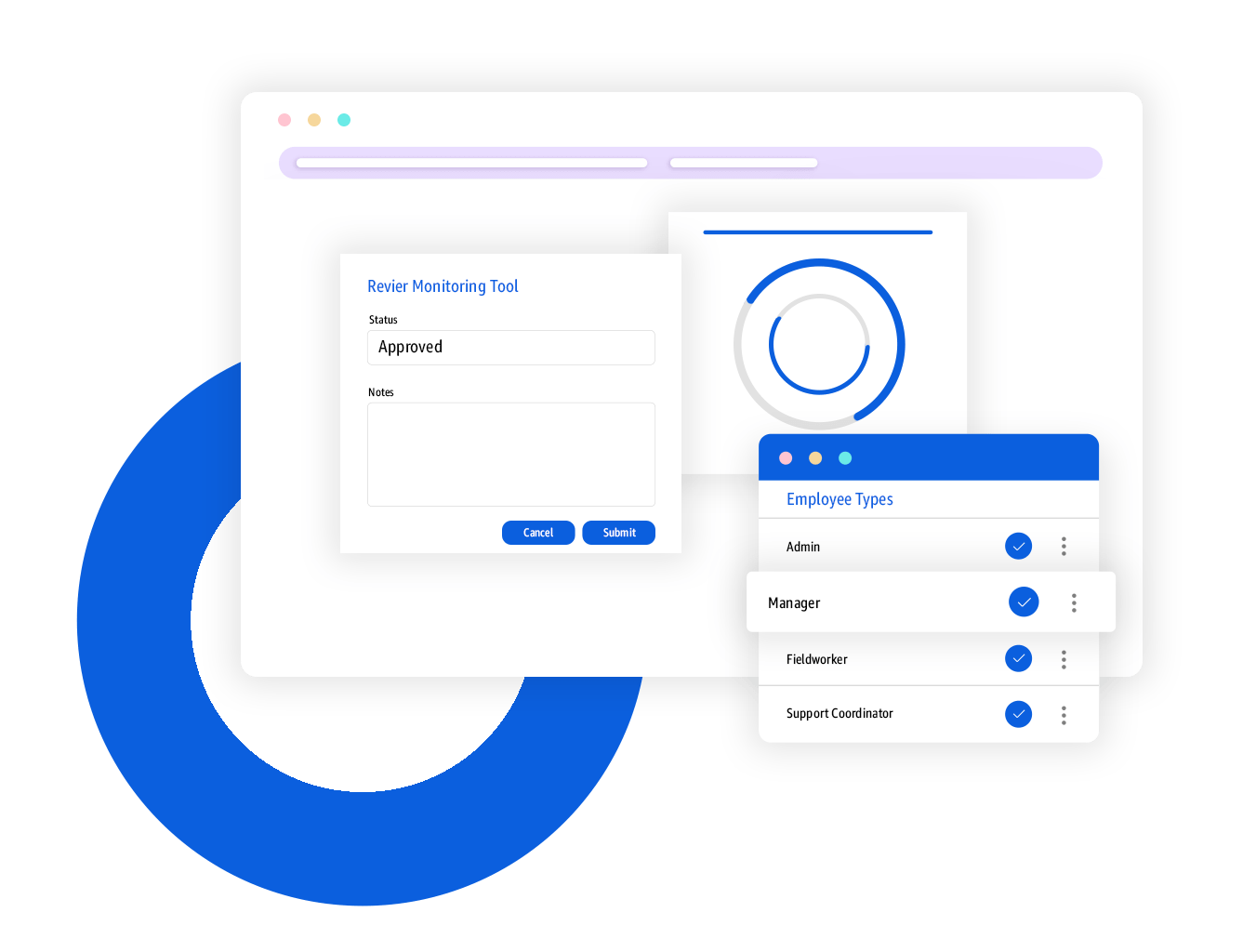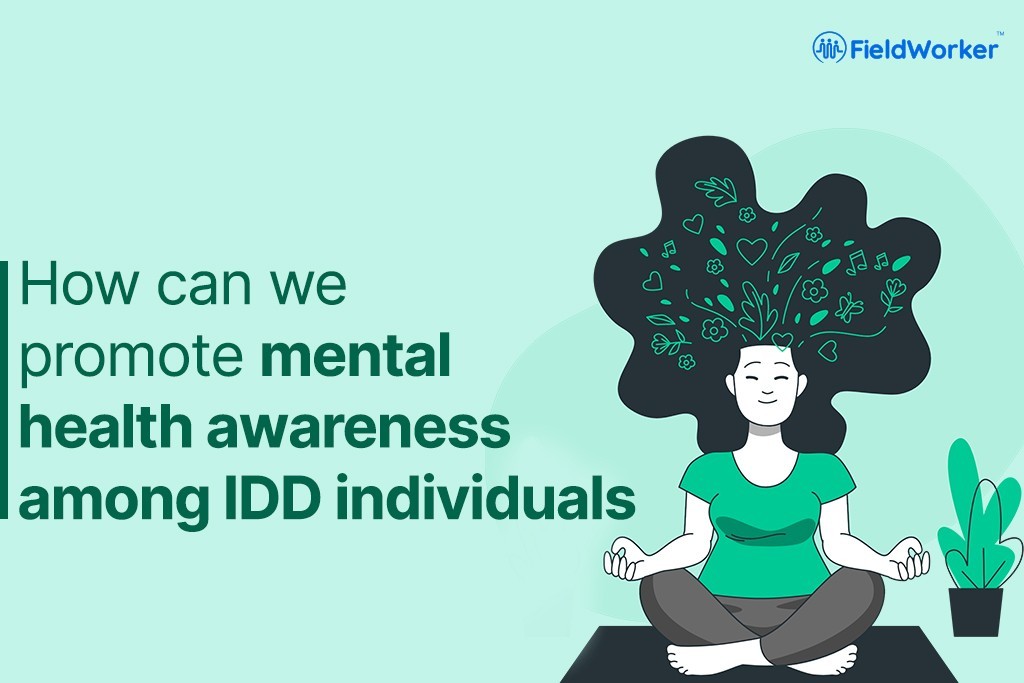Mental distress is much worse for people with Intellectual Developmental disabilities, and most health professionals don’t know how to help.
People with Intellectual developmental disabilities have the same aspirations, ambitions, and apprehensions as everyone else. Sadly, they also have the added stress of having a disability, which makes them more vulnerable to mental illness. Nonetheless, despite their increased need for mental health care, they face numerous barriers to obtaining it.
However, by raising awareness and knowledge of the difficulties that people with disabilities face, we can take steps to remove the barriers that they face in obtaining mental health care. We can also offer support and assistance in navigating the healthcare system and obtaining the care they require. We can help people with disabilities live fuller, joyful lives by doing so.
What do the statistics say?
According to the National Alliance on Mental Illness (NAMI), one in every 25 adults, or 4%, has a serious mental illness such as schizophrenia, bipolar disorder, or major depression.
– Furthermore, one in every five adults in the United States has a mental illness. That equates to 43.8 million people or 18.5% of the total population.
– A major mental illness affects approximately one in every five young people (ages 13 to 18; 21.4%) at some point in their lives.
– Bipolar disorder affects 2.6% of people, and schizophrenia affects 1.1% of adults.
– The estimated rate for children aged 8 to 15 is 13%.
– According to estimates, people with IDD experience mental health issues at a rate that is 2 to 3 times higher than that of the general population.
– As per the research data the prevalence rates for IDD and mental health issues co-occurring range is from 13.9% to 75.2%.
People with developmental disabilities frequently face barriers when attempting to obtain healthcare. These figures are even higher for people suffering from mental illnesses. According to statistics, in 2021, only 41% of adults with cognitive challenges have received mental health services. Meanwhile, only 62.9% of adults with severe mental illness and 50.6% of children aged 8 to 15 with cognitive disorders received mental health services.
There are several reasons for these disparities in mental health care. While some of these reasons are beyond a person’s control, we can take steps to address them.
The Barriers to Mental Health Treatment for Individuals with Intellectual and Developmental Disabilities:
Many barriers prevent people with disabilities from receiving the necessary mental health care. Mentioning the most common one’s below:
- Inadequate insurance coverage
A lack of insurance coverage is another reason people with disabilities may not receive mental health care. In 2018, only 44.7% of people with disabilities had private health insurance, compared to 74.9% of people without disabilities, according to the US Census Bureau. Furthermore, not all insurance policies cover mental health care. Many do not cover mental health services or limit the number of visits, making it difficult and expensive to get help. It also prevents people from receiving necessary mental health care until their condition worsens, lowering their quality of life.
- Communication difficulties
People with disabilities frequently struggle to communicate their needs to others. It can be a barrier in many aspects of life, but it is especially difficult when seeking mental health treatment. When people with IDD are unable to communicate their needs, they will possibly not be able to find providers who are willing or able to meet those needs.
- Discrimination
One reason for discrimination is a lack of awareness or understanding of mental illness and its consequences, which can lead to people suffering from mental illness being viewed as somehow responsible for their condition.
Another reason is the structure and funding of mental health services. In most countries including the US, mental health care is still largely based on a medical model, which can reinforce the notion that mental illness is a medical problem that needs to be fixed rather than a part of a person’s identity. People with mental illnesses may be viewed as ‘patients’ or ‘cases’ rather than humans with complex lives and needs.
- Poverty
Aside from the difficulties of having a disability, poverty can mean living in a high-crime area, having to move frequently, or being unable to afford healthy food. All these factors can contribute to increased stress and anxiety, exacerbating mental health issues.
- Lack of understanding about the relationship between developmental disabilities and mental illnesses
Physicians often address the physical ailments of a disability while ignoring the issues with mental health that encompass it. Isolation, which many people with disabilities experience, can also contribute to depression and anxiety. However, mental health care is frequently excluded from disability services.
People with disabilities frequently do not receive the care they require due to a lack of awareness and understanding of how disabilities and mental illness intersect. This can further aggravate the cases.
- Healthcare providers’ lack of experience and knowledge
Many mental health care providers lack the training to work with people with disabilities. It can lead to providers failing to understand their client’s unique needs and thus failing to provide the best care.
When working with people with disabilities, this lack of knowledge can make mental healthcare providers anxious or helpless. They may be doubtful of how to modify their treatments to meet the needs of their patients. As a result, they may be less likely or provide substandard mental health care to people with disabilities.
How to overcome these difficulties?
Regardless of the difficulties, there are ways to overcome them and get the health care that people with IDD require.
Learn about the needs of people with IDD and how to accommodate them.
– Make absolutely sure your employees are also educated on disability norms and sensitivity.
– Make sure your facility is accessible and you have the necessary softwares, equipment, and supplies to treat patients with disabilities experiencing psychological difficulties.
– Make a commitment to providing all patients with high-quality, comprehensive care.
– Employees should be encouraged to report any instances of discrimination or mistreatment.
– Encourage an inclusive and respectful culture at your care center.
Before we leave:
Joint efforts are required for any change in community ethics. Policymakers should implement laws and regulations to protect the rights of people with IDD suffering from mental illnesses. Individuals should support and assist people with disabilities in their communities. They should also consider donating to organizations providing healthcare to people with developmental disabilities. Finally, disabled people (or their families) should be open about their needs and struggles with their healthcare providers, and they should report any instances of discrimination. You can also take the responsibility of educating IDD individuals about their rights and laws that protect them and know where to go for assistance when required.

